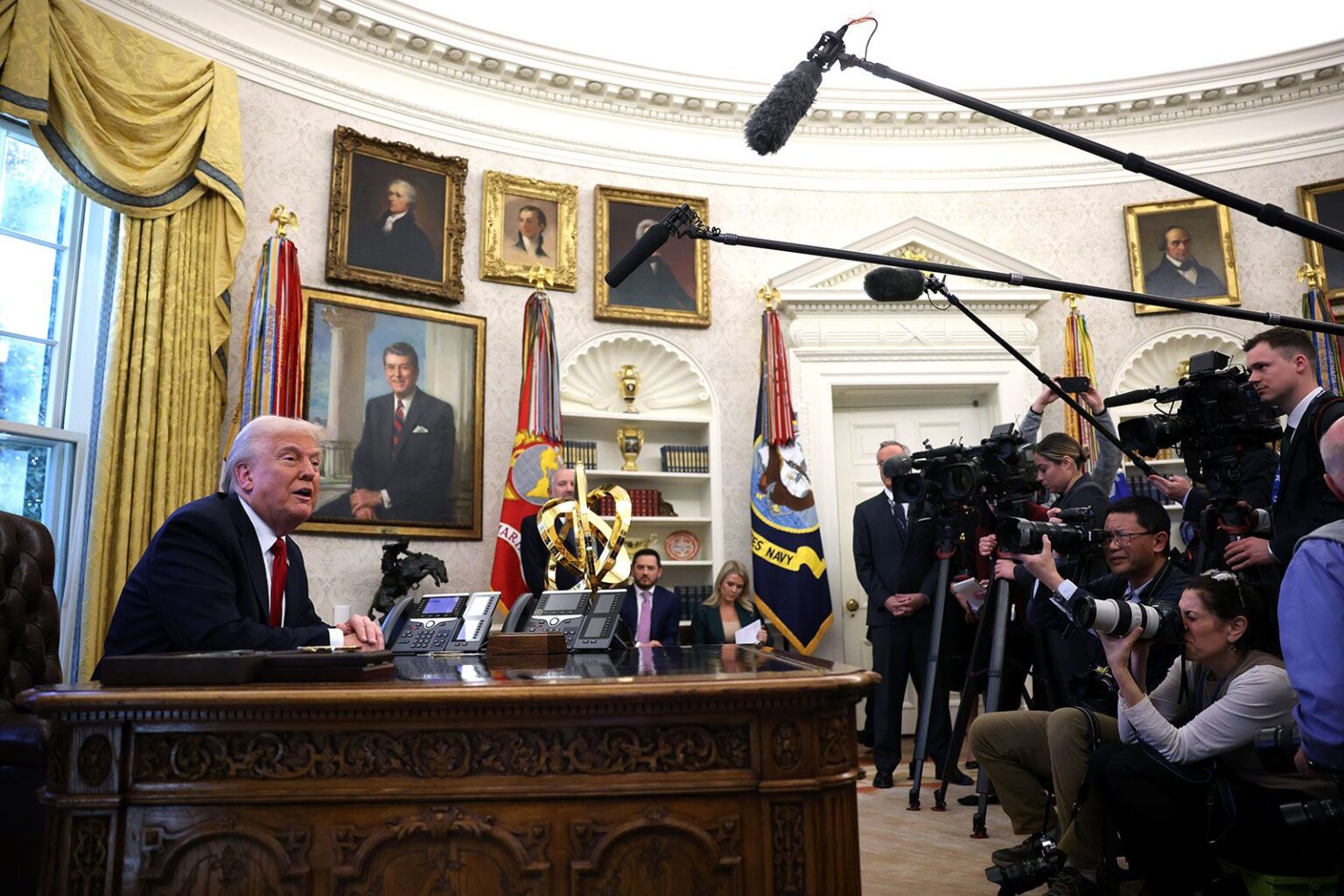In Donald Trump’s White House, it matters less what you screw up than how hard you fight back.
The uproar over operational details of military strikes on Yemen posted on a group chat among top administration officials is highlighting this fundamental rule of life in the president’s orbit.
Naive and sloppy behavior by top Trump aides could have endangered US pilots. One of the worst intelligence breaches by top officials in years, it raises grave questions about the competence of top officials meant to keep Americans safe.
But the administration’s main concern is protecting the president and his team. They are demonizing those who point out their malfeasance and embroidering the wider conspiratorial narrative that Trump is again a victim of a deep state witch hunt.
The obsession with answering a national security scandal with a fiercely political argument is characteristic of a White House that never admits wrongdoing — following one of the core principles of Trump’s pre-political life.
But the drama may already have damaged US operations in Yemen as well as America’s reputation more broadly and offered an intelligence bonanza to its enemies. The contempt by top officials for basic security precautions and a refusal to hold themselves to account for transgressions that could get a subordinate dismissed or even prosecuted can only compromise the integrity of government.
It’s too early to say, however, whether the careers of top Cabinet members and officials are threatened and whether Trump himself might pay a political price. The president’s process of souring on subordinates is often a slow burn, which can be affected by media coverage and where blemishes gather their own momentum and limit the shelf life of top aides.
White House pulls out one of its favorite excuses: It’s a ‘hoax’
White House press secretary Karoline Leavitt on Wednesday insisted that the affair was a big “hoax” and showed that “Democrats and their propagandists in the mainstream media know how to fabricate, orchestrate and disseminate a misinformation campaign quite well.” She also attacked the integrity of Atlantic editor-in-chief Jeffrey Goldberg, who was mistakenly added to the chat among senior officials.
Trump, meanwhile, claimed that the explicit pre-mission details of attacks on Houthi rebels posted by Defense Secretary Pete Hegseth were no big deal, arguing that national security adviser Mike Waltz took responsibility for putting Goldberg into the chat on the Signal app. “How do you bring Hegseth into this?” Trump asked a reporter in the Oval Office. “Hegseth had nothing to do with this.”
At the heart of the president’s strategy is a willingness to blatantly deny facts that are obvious to anyone who reads the additional text messaged published by the Atlantic on Wednesday. In a way, this refusal to accept the truth gives the administration a special kind of power, since it suggests there is nothing that it can’t get away with. Democratic lawmakers and media commentators who point out the truth make little headway because they are playing a conventional game that can’t engage with Trump’s shifting of realities.
The White House also tried to blur the damning evidence of the controversy with a semantic argument about whether the information posted by Hegseth was classified or amounted to “war plans.” Leavitt tried to pass off specific information on the thread about the timing of US attacks by warplanes and drones as a “policy discussion” and as usual blamed everything on Trump’s predecessor, referring to Iran-backed Houthi militants as terrorists who were “allowed to run wild by the Biden administration.”
The Trump strategy of never admitting wrongdoing and going for all-out attack was quickly adopted by Hegseth and Waltz as soon as the story broke. The defense secretary fiercely attacked Goldberg and insisted repeatedly and inaccurately that “no one is texting war plans.” He claimed in a statement that no classified information was posted nor information “about sources and methods.” “We will continue to do our job, while the media does what it does best: peddle hoaxes,” he added.
Hegseth’s defiance was typical of the bombast that Trump spotted when he was a Fox News anchor and vehement defender of the president in his first term and that made him defense secretary, despite his lack of high-level national security experience.
Waltz also indulged in several of the histrionic television appearances that Trump demands of his subordinates. On Fox News on Tuesday, he called Goldberg a “loser” and launched a new conspiracy that suggested he had somehow hacked his way into the chat.
The most obvious danger of the notorious group chat was that it could have put American service personnel at risk during raids over Yemen. Despite his denials, Hegseth posted information on timing, targets and weapons systems before attacks took place, according to details of the chat posted by the Atlantic.
“215et: F-18s LAUNCH (1st strike package)” one of the texts read. “1345: ‘Trigger Based’ F-18 1st Strike Window Starts (Target Terrorist is @ his Known Location so SHOULD BE ON TIME – also, Strike Drones Launch (MQ-9s)” another one said.
Normal practice in US military operations is to keep intelligence under the tightest hold until all Americans are out of danger. Posting details of forthcoming strikes on a platform that could be intercepted by hostile intelligence agencies and passed on to Houthi units was hugely irresponsible.






